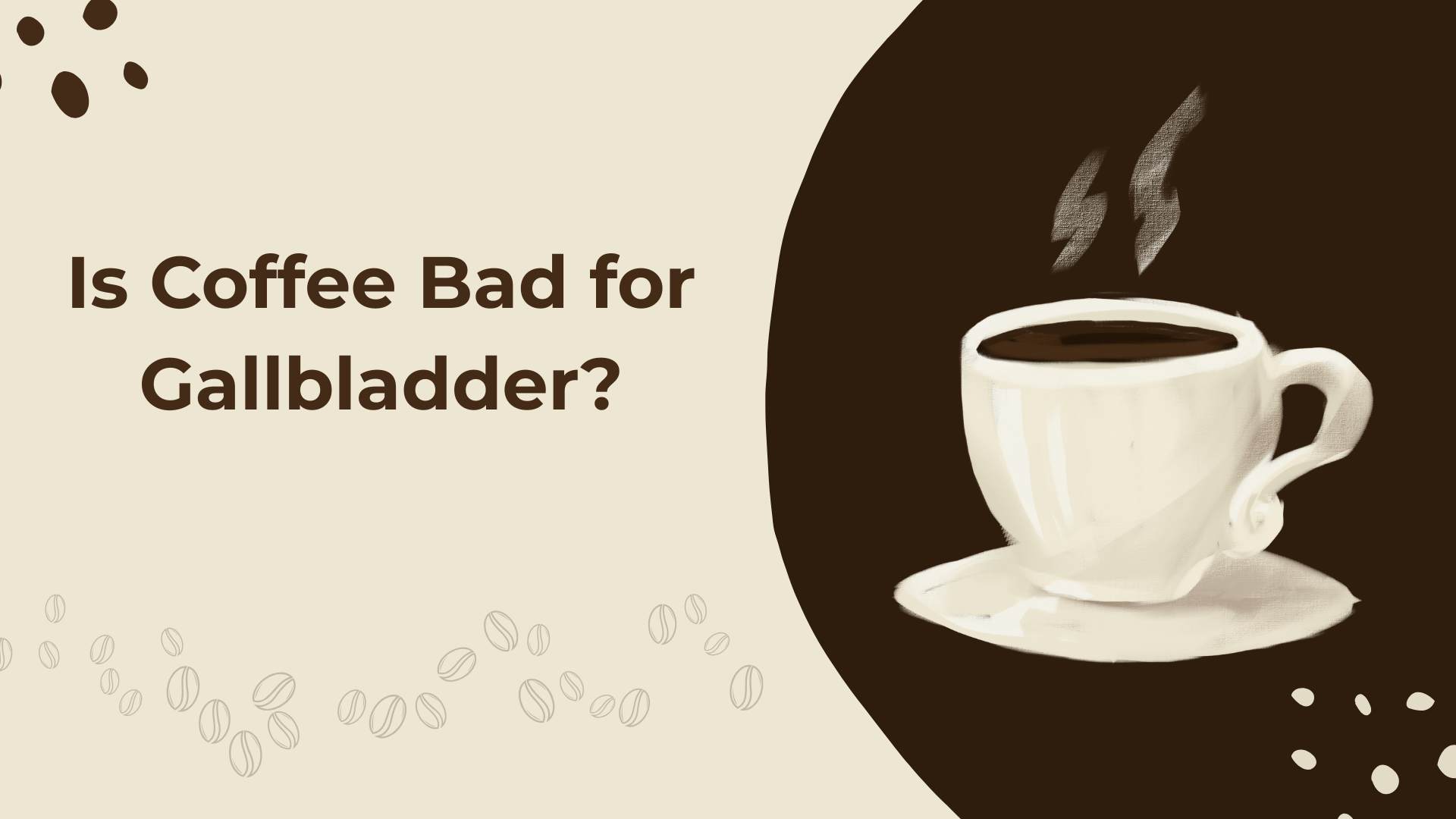Coffee is one of the most popular beverages worldwide, with millions of people enjoying it daily for its stimulating effects and rich taste. However, if you have gallbladder issues, you might wonder whether consuming coffee is a good idea. The relationship between coffee and gallbladder health is a topic that often sparks confusion. Let’s dive into the facts and explore whether coffee is bad for your gallbladder or if it can be safely consumed.
What Is the Gallbladder?
The gallbladder is a small, pear-shaped organ located under your liver. Its primary function is to store bile, which is produced by the liver. Bile helps break down fats in the foods you eat. When you consume fatty foods, the gallbladder releases bile into the small intestine to aid in digestion.
Gallbladder problems, such as gallstones or inflammation (cholecystitis), can disrupt this process, leading to digestive discomfort, pain, and other health issues.
How Does Coffee Affect the Gallbladder?
The impact of coffee on the gallbladder can vary depending on the person and the health of their gallbladder. Here are some of the potential effects:
1. Stimulation of Bile Production
Coffee, particularly caffeinated coffee, stimulates bile production in the gallbladder. Some studies suggest that coffee can promote the contraction of the gallbladder, leading to the release of bile into the digestive tract. This may help with fat digestion, but in people with gallbladder issues, it could potentially trigger discomfort or pain.
For people with a healthy gallbladder, this stimulation may be beneficial, helping to digest fats more efficiently. However, for individuals with gallstones or a weakened gallbladder, this increased bile production can sometimes lead to complications or exacerbate symptoms.
2. Potential for Gallstone Formation
One of the concerns with coffee is that it could contribute to the formation of gallstones. Gallstones form when there is an imbalance in the substances that make up bile, such as cholesterol. While coffee does not directly cause gallstones, there is some evidence suggesting that excessive caffeine intake could lead to changes in bile composition. However, this link is still unclear, and more research is needed to determine if caffeine plays a significant role in gallstone formation.
3. Digestive System Effects
Caffeine is known to stimulate the digestive system, leading to faster gastric emptying. While this can be helpful for some, it may lead to increased acid production or irritate the digestive tract in others, especially those with pre-existing conditions like acid reflux or gallbladder disease. For people with gallstones or inflammation in the gallbladder, coffee might cause discomfort, bloating, or nausea.
4. Chronic Gallbladder Disease
For individuals suffering from chronic gallbladder disease, drinking coffee might worsen their symptoms. Gallstones or gallbladder inflammation can cause intense pain (often referred to as a gallbladder attack) when bile is unable to flow properly. Caffeine may exacerbate this condition by stimulating the gallbladder and causing it to contract too forcefully, which could potentially result in pain or discomfort.
Is Coffee Safe for Gallbladder Issues?
If you have gallbladder problems, whether coffee is safe for you depends on your individual condition and how your body reacts to coffee. Here are some general guidelines:
- Mild Gallbladder Issues: If you have a mild issue, such as indigestion or occasional discomfort, moderate coffee consumption may not cause any harm. However, it’s important to monitor how your body responds to coffee. If you notice increased discomfort, it may be best to limit or avoid caffeine.
- Gallstones or Gallbladder Disease: If you have gallstones or gallbladder disease, it is recommended to speak with your healthcare provider about coffee consumption. In some cases, it may be best to limit or avoid coffee, especially if it seems to trigger symptoms like pain or bloating.
- Post-Gallbladder Removal (Cholecystectomy): For individuals who have had their gallbladder removed, coffee may be tolerated better than for those with an active gallbladder issue. However, since the bile is no longer stored in the gallbladder, but rather flows directly from the liver into the intestines, coffee might still cause digestive issues for some people. If you experience discomfort, it’s best to limit your intake.
What Are the Alternatives?
If you have gallbladder issues but still want to enjoy a warm, comforting beverage, you can try some alternatives to coffee. Herbal teas, such as peppermint or ginger tea, are often soothing and can aid digestion. These beverages are caffeine-free and less likely to irritate the gallbladder.
If you’re a coffee lover and want to keep drinking coffee, consider switching to decaffeinated coffee. Decaf coffee has less of the stimulating effect on the gallbladder and may be gentler on your digestive system. Additionally, consider reducing your overall caffeine intake to avoid potential irritation.
Final Thoughts
While coffee can have both positive and negative effects on the gallbladder, it largely depends on your individual health and the state of your gallbladder. For people with a healthy gallbladder, moderate coffee consumption can stimulate bile production and aid in digestion. However, if you have gallstones, inflammation, or other gallbladder issues, coffee could potentially exacerbate symptoms and cause discomfort.
If you’re unsure about whether coffee is safe for your specific condition, it’s always a good idea to consult with your doctor or a healthcare professional. They can help guide you on the best dietary choices based on your health needs. Always listen to your body, and if coffee seems to irritate your gallbladder, it might be time to cut back or try other alternatives.
